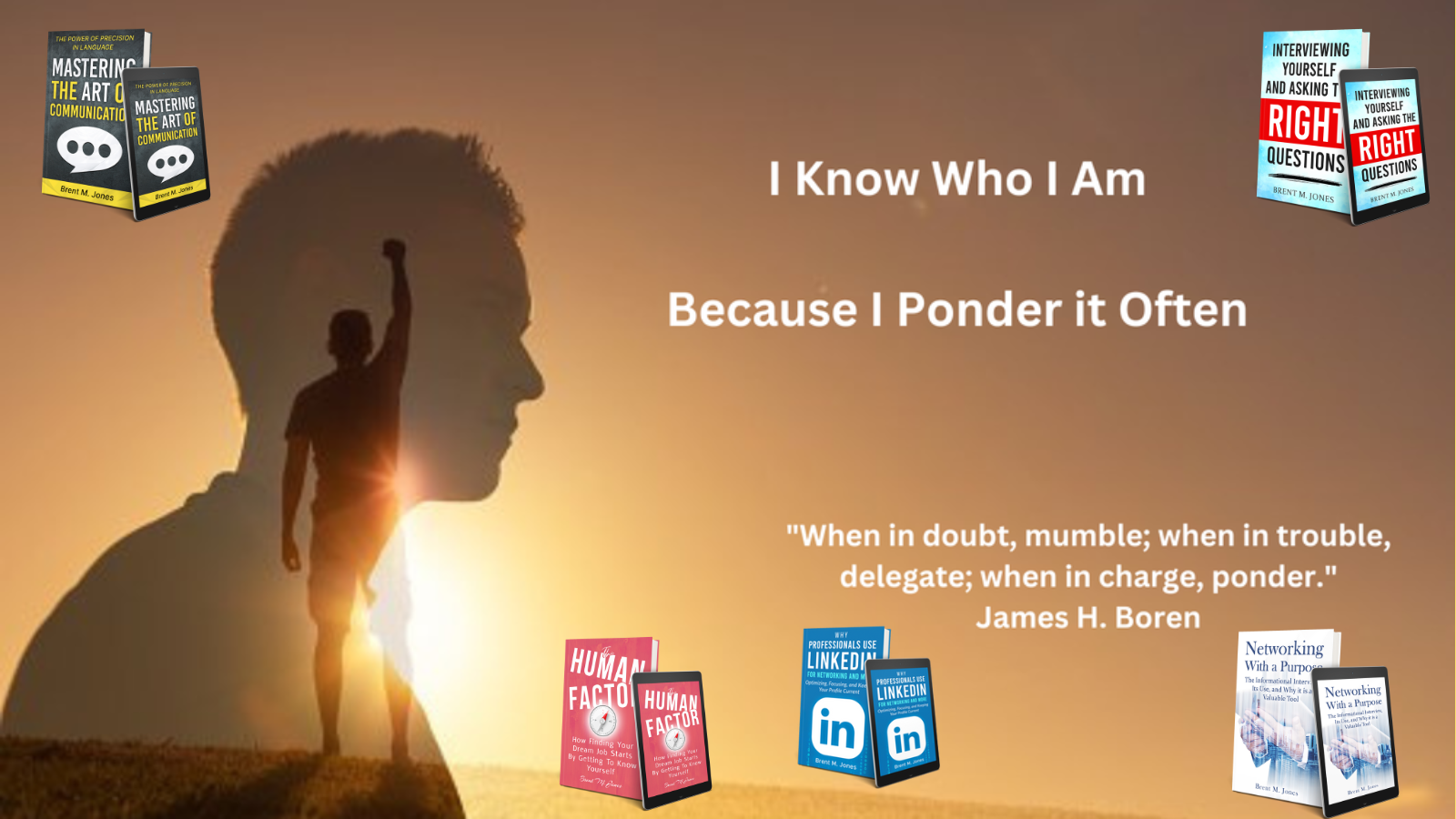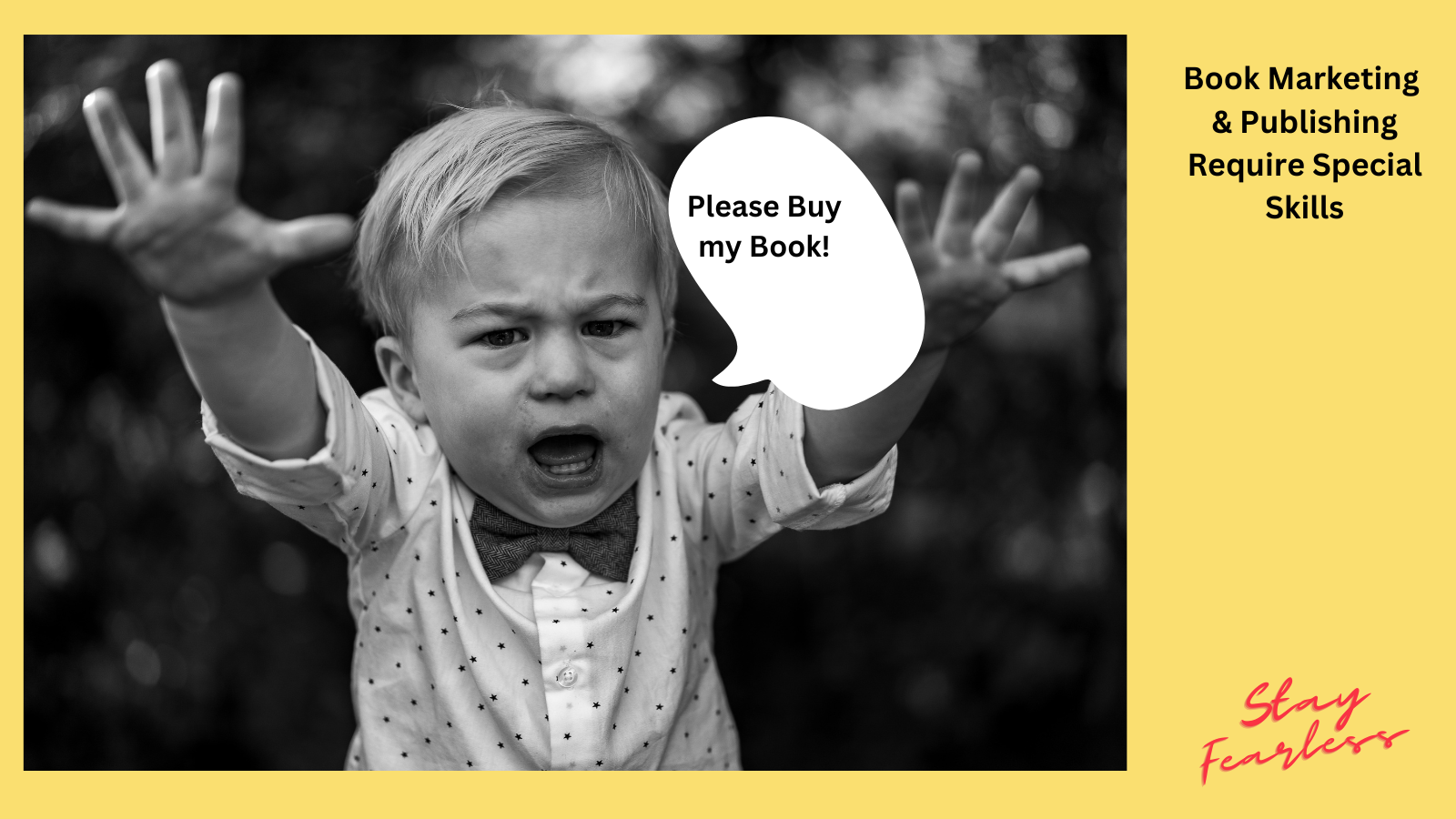Are People Really Wired for Certain Things →
Target marketing uses researched data to find out what a person who might read a particular book is looking for. When you figure that out, you have them wired.
Similarly, LinkedIn’s algorithms, like a well-oiled machine, swiftly match job postings' required skills and titles with the profiles of potential applicants, ensuring the best fit for both parties..
Keywords are part of the writing job. Keywords are one or more words used to indicate the content of your book. Metadata and keywords make your book appear when a reader looks for a specific keyword. You clearly understand their preferences and can tailor your marketing efforts to meet their needs online.
So many good books, so little time →
This website expresses the idea that "Connected Events Matter" because they can shape our lives and determine our future direction.
I focus on topics such as self-worth, self-esteem, and personal and professional growth. Welcome to my website. I'm Brent M. Jones, the Website Author. I share my passion for personal development and growth—all essential aspects of the human experience. I have written several books on these subjects, which can help us redefine our past, present, and future selves.
A Little Bird Told Me This Was a Great Ad. →
A little bird told me that this book will equip readers with the essential toolkit for becoming a Wordsmith. With the right words, readers can communicate effectively and express their thoughts, feelings, and ideas with clarity and precision. Inside, readers will find a comprehensive guide to understanding communication, effective communication, and how to improve communication skills
The Gap Between, Writing, Promoting, and a Purchase →
As someone who has written multiple books, I understand the frustration of putting in the effort to produce a book only to need help with getting it purchased. Where should a writer look to lay blame for slow sales results? The choices would be the content, promotional effort, or distribution point.
For many, Amazon was an obvious choice and primary focus for book sales distribution. However, for others, including myself, this choice has resulted in paying more than what is earned in sales for an extended period. This "gap" between effort and sales is worth pondering. An easy assumption is that the problem can be pricing, but the solution may lie in the book genre or content.
Positive reviews, feedback, and even some sales can be confusing when the gap between effort and results persists. Exploring other avenues for book sales, such as listing on KOBO, D2D, Apple Books, and B&N, can offer promise and access to new customers. However, there is still a learning curve in promoting and finding traction by adding additional distribution and marketing points or by going “wide” using multiple approaches to find sales.
Writing can be addictive, but as a marketer, it is frustrating to be addicted to efforts that yield little results. The gap between action and successful sales is a common struggle for writers, but those who overcome it can teach others and find success in their genre. On the other hand, it is often those that don’t overcome it that close their own gap by resorting to teaching others how to succeed
Thoughts about Book Marketing →
When it comes to book marketing, authors use many different strategies to promote their work. One of the most popular tactics is to leverage social media platforms like Facebook, Twitter, and Instagram to connect with potential readers and build a following. By sharing updates about their writing process, book releases, and other related content, authors can create a buzz around their work and generate interest from a wider audience.
Another effective way to market books is through book reviews and word-of-mouth recommendations. Reviews posted on sites like Amazon, Goodreads, and other book blogs can help generate buzz and attract new readers. Additionally, authors can encourage their readers to share their books with friends and family, or even offer incentives for those who leave reviews or refer others to their work. By leveraging the power of social networks and word-of-mouth marketing, authors can build a loyal fan base and increase the visibility of their books in the crowded marketplace.
Book Marketing is tough, a challenging process requiring a lot of effort and dedication. There are so many different aspects of marketing that need to be considered, such as identifying the target audience, developing the right messaging, and choosing the most effective channels to reach your audience. It can be overwhelming, but with careful planning and execution, marketing can be a powerful tool for getting new customers and growing your business.
Despite the challenge, staying focused and committed to the processis essential to achieving success, and the right amount of luck is also vital.
Do Better by Doing More Better Doesn't Work →
More is not going to lead to better. What do you do when you want to do better and believe you have done better?
The answer often is in doing differently. When you do better, you are still changed to the same history and to the same way of thinking that got you to where you are and probably is the same as your competition is using in their review.
Does the question then become, what is different? You are different, so find out why you are and start there; in understanding others, understand why it is not the same.
Paperbacks vs's Hardbacks & eBooks →
Reading increases our knowledge of the world. The attraction of words and the stories they create is like living multiple lives. But of course, that is the real message here, but there is no harm in considering what kind of book might be regarded as the best, format-wise.
I prefer the hardback format when I read a book, but where do you put them? At least they look good on a shelf, but I need more room with about 2000 + books (both hardback and paperback) in my library. Paperback books are number 1 in sales, indicating they are preferred over hardbacks.
The jury is still out for me on eBooks, but the more I get, the more I like them.
An entire library is a significant influence, so the quantity of books matters.
Big established publishing companies and established authors like the hardback because they make more money for them.
My thoughts about this are very different as a self-published author. I love eBooks because they are easier to do than paperback. Shorter books don’t cost as much to produce, and storage is no problem. Paperbacks are my favorite because they seem more like actual books.
75% of adults in the United States read a book in some format over the last year
32% of Americans claim they only read print books
33% say they read both print books and e-books
9% say they only read e-books
23% of the respondents said that they don't read books
10 Reasons that Paperback Books are Best, Compared to Hardbacks
Paperbacks Books are easy to take with you everywhere.
You can bring more of them with you when you travel. (compared to hardbacks, that is)
Paperbacks don't break the bank. (Again, compared to hardbacks)
You can fit more of them on your shelves.
It's easier to lend them to a friend. (Again, compared to hardbacks
They're easier to read on the train or in the car.
They don't have dust jackets.
They are more flexible. (than hardbacks)
These reasons are constantly changing.
Creating Revelant Email Lists
Why are we told we have to have an email list if we want people to follow us? Is it so we can nag people into following and that our content isn’t enough? Since email lists are becoming more valuable is our creative content getting weaker?
Well, maybe this is because our content now faces increased competition in the ad space and even good content now is facing declining organic reach.
The other marketing channels are also becoming difficult to control which means an email list we control can be a great advantage.
Authors face the task of selling their own books more than ever before and so creating their own list focused on their readers is important.s.
The lists are used to email readers about upcoming events, sales, new releases, and press release contacts that might actually publish the release.
Self Publishing is No Cake Walk →
Marketing is more than creating ads and promotions it is also about getting that information in front of the right people who might respond by buying the promoted items.
When it comes to selling your self-published books, it's crucial to know your target audience and you have to understand what your niche and genre really is. You need to know would be interested in reading your books? What are their interests and what age group do they belong to? Once you have a clear understanding of your audience, you can tailor your marketing efforts to reach them effectively..
Having a strong online presence is also key to selling your self-published books. This includes having a website, blog, and social media presence. A website can serve as a hub for your books, where readers can learn more about your work, purchase your books, and sign up for your mailing list. A blog can help you connect with your readers on a personal level, while social media can help you reach a wider audience and build a community around your work.
Investing time and resources into creating a professional-looking book cover and description is also crucial. Your book cover is the first thing potential readers will see, so making a good first impression is essential. A well-crafted book description can also convince readers to give your book a chance.
Lastly, remember that selling self-published books takes time and effort. Building a loyal readership and achieving your goals as a writer takes persistence and hard work. So keep writing, keep learning, and don't give up on your dreams.
The Number 1 Best tool for Marketing your Book shouldn't be a surprise - It is Content →
So many things can sink or establish the success of a new book. Title, cover, timing, reviews, lack of reviews, etc. It is no secret what matters most in a book but is often overlooked.
There are many lists to inform us of the best choices; of course, having published many books, I can not personally vouch for any of these.
Content Matters Most
Content is inside the book and the message of the book. The words are the message. Sometimes the cover has the most substantial impact when you market your book, but even then, the cover reflects the content.
The value of the content needs to be focused on those wanting that value for themselves. Often the content becomes the writer’s brand.
Seven Ways to Promote Your Book
Guest blog posts
Blog & Podcast Interviews
Using Social Media
Create a YouTube Channel
Join reader groups (Facebook and others)
Go On a Local Book Tour
Use Your Mailing List.













